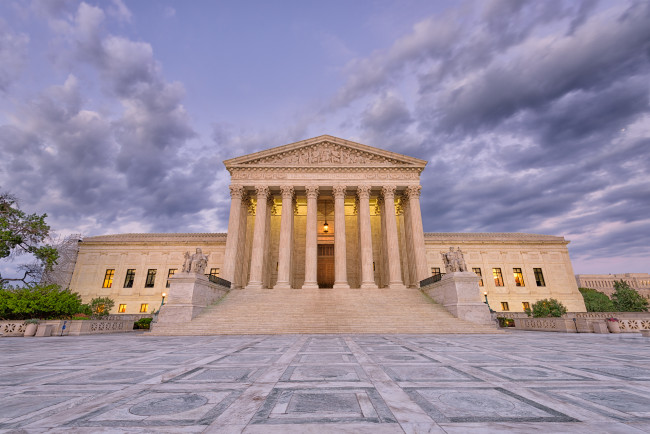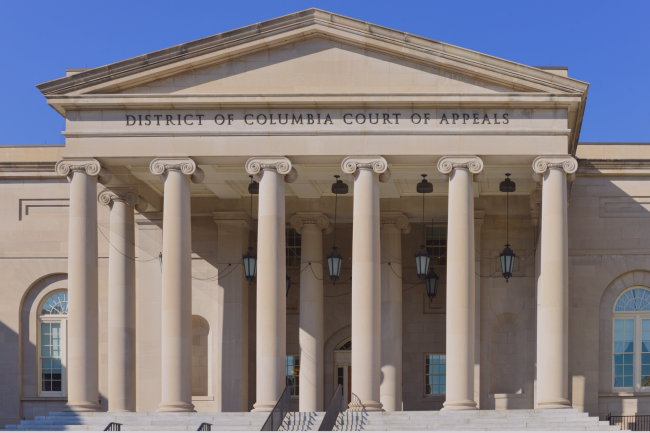-
 Read more
Read moreFor background on this case, please refer to Part I.
On April 18, 2023, the Supreme Court heard oral arguments in United States ex rel. Schutte v. Supervalu Inc., 9 F.4th 455, 459 (7th Cir. 2021) and United States ex rel. Proctor v. Safeway, Inc., 30 F.4th 649 (7th Cir. 2022) (consolidated). Much anticipated by False Claims Act practitioners, the argument previewed how the Supreme Court is thinking about the case.
-
 Read more
Read moreIn recent years, artificial intelligence (“AI”) has surged in popularity, quickly becoming an integral part of many industries. As AI algorithms continue to advance, legal professionals should consider how they can integrate AI into their practice. This post discusses two key ways AI seems poised to transform legal research—and one important warning.
-
 Read more
Read moreBelow is the first in a three-part series on U.S. ex rel. Schutte et al. v. SuperValu Inc.
The story of one of the most significant False Claims Act (“FCA”) cases this year began nearly two decades ago. Between 2006 and 2012, SuperValu, Inc.—which operated thousands of pharmacies nationwide—offered a “price match program” whereby it discounted the prices of certain prescription drugs to “match” the prices charged by its competitors. United States ex rel. Schutte v. SuperValu, Inc., No. 11-3290, 2020 WL 3577996, at *3 (C.D. Ill. July 1, 2020). SuperValu, however, did not factor these discounts into the price it reported to government healthcare programs when submitting claims for reimbursement. Id. Instead, SuperValu reported prices set by its corporate pricing department, which were controlled by contract or by state law. Id. at *5.
-
 Read more
Read moreNote: After this post was written, the Court rescheduled the cases presenting the issue, likely for distribution at the next conference on May 18, 2023.
On Thursday, May 11, 2023 the Supreme Court will consider several petitions, presenting questions about whether and how federal judges can consider criminal conduct of which the defendant was acquitted in imposing sentence on other charges resulting in a conviction. It may not be exactly right to say that this issue has been “percolating” for a long time; the federal courts of appeals have treated it as having been resolved by the Supreme Court’s per curiam opinion in United States v. Watts, issued in January 1997. Watts summarily reversed two decisions by the Ninth Circuit that had precluded judges from considering conduct underlying acquitted charges when imposing a sentence.1 It might be fairer to describe the law in the Circuits as having congealed around a decision that the Court issued without full briefing or oral argument and that is no longer valid on its own terms.
-
 Read more
Read moreA recently re-introduced bill by Senator Marco Rubio (R-FL) would seek to expand the reach of the Foreign Corrupt Practices Act (“FCPA”) over corporations operating in China.1 The Countering Corporate Corruption in China Act of 2023 aims to use the FCPA—a law generally prohibiting the use of bribes and other corrupt activities to obtain or retain business in foreign countries—as a tool to limit or prohibit corporations and individuals subject to the FCPA from publicly supporting the Chinese government.2 If the bill were enacted, it would greatly increase the cost of compliance of operating in China by requiring corporations to track and monitor the political speech of their employees.
-
 Read more
Read moreOn April 13, 2023, the en banc District of Columbia Court of Appeals issued its decision in response to a certified question from the Second Circuit. Rather than weighing in directly on whether former President Trump’s statements concerning E. Jean Carroll’s sexual assault allegations were within the scope of his employment under the respondeat superior standards in District of Columbia law, the en banc court took the opportunity to restate and clarify the general respondeat superior inquiry. District of Columbia practitioners who watched the oral argument may have breathed a sigh of relief that the court resisted the temptation to tailor a legal standard of great importance to ordinary tort litigation in the District of Columbia to the unique circumstances of a case presented by litigation in New York. The court also declined the Second Circuit’s invitation to adopt an “internalization” standard that places on the employer broad liability for foreseeable harms. In addition, the court declined to adopt a categorical rule “that the conduct of elected officials speaking to the press is always within the scope of that official’s employment.” Trump v. Carroll, D.C. Ct. App. No. 22-SP-745, Slip Op. at 39 (Apr. 13, 2023). Instead, the court explicated a fact-intensive scope of employment inquiry which it concluded was for the factfinder in the case, not something that could be decided as a matter of law on the record before the court. Id. at 41.
-
 Read more
Read moreIn March 2023, at the American Bar Association’s White Collar Crime Institute in Miami, Gary S. Lincenberg moderated a panel of general counsels. The panel covered a range of different issues; this post focuses on the discussion about changing approaches to confidentiality and privilege in the context of internal investigations.
-
 Read more
Read moreThe Justice Department’s invited amicus curiae brief in Blassingame v. Trump1 exposes another anomaly in treating the President’s scope of employment as a question of state tort law for purposes of the Westfall Act. In considering whether the President is a federal employee for purposes of the Westfall Act in the Carroll v. Trump matter, why didn’t the district court and the Second Circuit majority address the doctrine of presidential immunity?
-
 Read more
Read moreWhat’s in a name? If it’s in a warrant and you’re in the Eleventh Circuit, enough to arrest and jail you for three days even if you don’t match the description of the wanted person, the warrant was issued 26 years earlier from another state, and the same law enforcement agency mistakenly arrested you on the same warrant four years earlier. Sometimes a court issues a decision that, while a plausible consequence of prior holdings, is so wrong-headed that it requires a re-examination of the false doctrinal steps that led to it. The en banc Eleventh Circuit’s recent decision in Sosa v. Martin County (Fl.) Sheriff,1 is an example.
-
 Read more
Read moreOn January 11, the full complement of active judges of the District of Columbia’s highest court spent more than two and a half hours hearing oral argument about the District’s respondeat superior liability standard in Trump v. Carroll. The U.S. Court of Appeals for the Second Circuit certified to the DC Court of Appeals the question whether former President Trump was acting within the scope of his employment under District law when he made allegedly defamatory statements after E. Jean Carroll accused him in a magazine article of having sexually assaulted her decades earlier. It is understandable that none of the judges asked why District law should control, given that all parties to the case agreed that the District’s standard should determine whether the former president has immunity to Ms. Carroll’s suit.
As the regulatory and business environments in which our clients operate grow increasingly complex, we identify and offer perspectives on significant legal developments affecting businesses, organizations, and individuals. Each post aims to address timely issues and trends by evaluating impactful decisions, sharing observations of key enforcement changes, or distilling best practices drawn from experience. InsightZS also features personal interest pieces about the impact of our legal work in our communities and about associate life at Zuckerman Spaeder.
Information provided on InsightZS should not be considered legal advice and expressed views are those of the authors alone. Readers should seek specific legal guidance before acting in any particular circumstance.
Contributing Editors

John J. Connolly
Partner
Email | +1 410.949.1149

Andrew N. Goldfarb
Partner
Email | +1 202.778.1822

Sara Alpert Lawson
Partner
Email | +1 410.949.1181

Nicholas M. DiCarlo
Associate
Email | +1 202.778.1835




